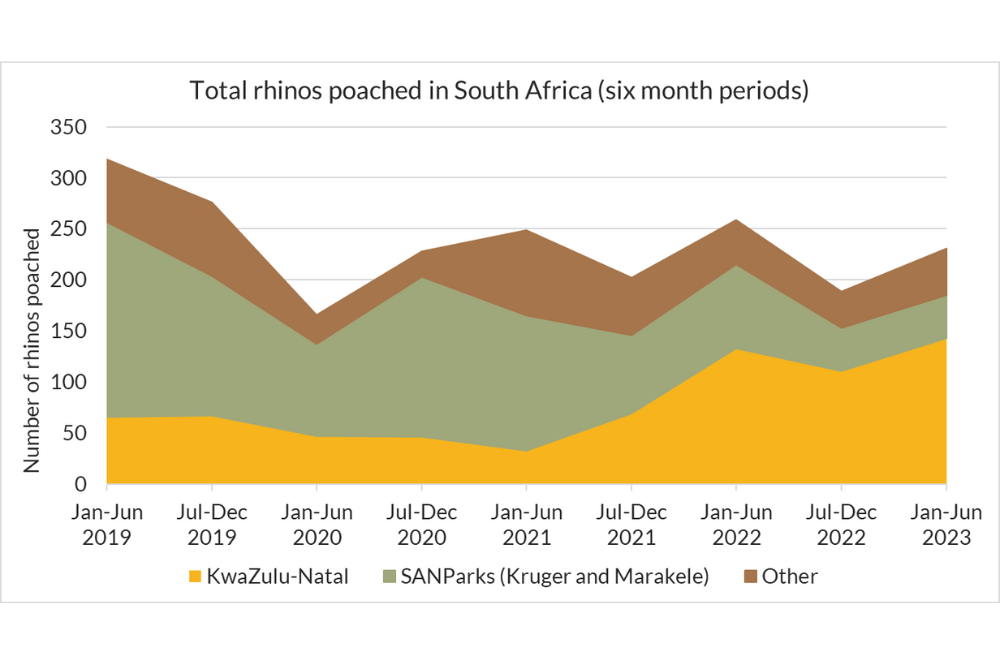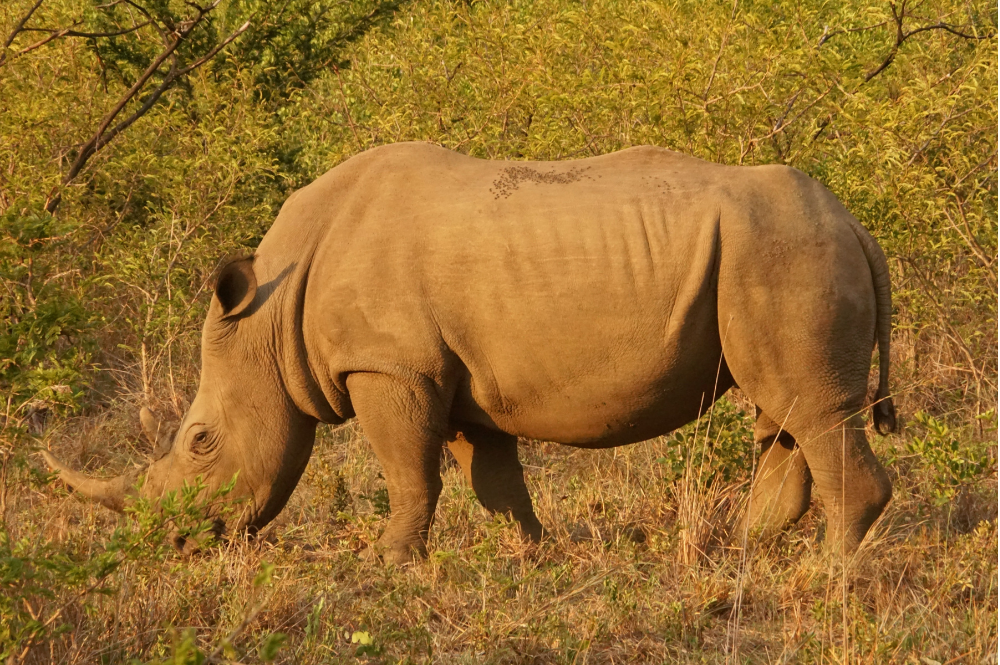According to figures released on 1 August this year, 231 rhinos were poached in South Africa between January and June 2023. When compared to the same period in 2022, the total number of rhinos poached across the country shows a welcome decline. However, Save the Rhino has been reporting on the poaching crisis in KwaZulu-Natal (KZN) over the past year, and these new figures paint an increasingly worrying picture for rhinos in the Province.
There were 143 rhinos killed in KZN in the first six months of this year, an increase from 133 in the first half of 2022. Most incidents took place within Hluhluwe-iMfolozi Park, a reserve that has been heavily targeted by poaching gangs in recent years. As we have previously reported, organised criminal networks have shifted away from Kruger National Park, likely due to declines in the Park’s rhino population following years of intense poaching, combined with innovative rhino protection efforts. KZN, however, still has significant rhino populations and is currently the prime focus for poachers.
Dr. Jo Shaw, CEO of Save the Rhino International, said, “Whilst this news shows a positive trend overall, knowing that 231 rhinos have been killed in six months is very concerning. Further, this most recent rise in poaching in KwaZulu-Natal is extremely worrying. Rhino populations, and the rangers dedicated to protecting them, remain under relentless pressure.”
To counter the increase in poaching within KZN, the South African Government announced that significant projects are underway, including collaboration between key departments, the development of a new joint operations centre, repairs to boundary fence lines and a boost to prosecution capacity. Yet, with rhinos killed almost every day in the Province, dealing with the ongoing crisis remains incredibly difficult.
Rangers are constantly on high alert to confront poaching attacks in extremely challenging environments whilst working in an often underfunded role. At Save the Rhino we recognise the immense value of rangers and a significant proportion of our funding goes towards projects supporting them. We are pleased to see Minister Creecy’s statement highlight the importance of rangers in tackling poaching and in providing a strong base to ensure that rangers at all levels are supported and valued for their immense contribution to conservation.
Nonetheless, rangers alone cannot stop poaching.
Dr. Jo Shaw added, “Collaboration across communities, sectors and borders is critical. We’ve got to build strong alliances that can proactively deter people from poaching, as well as enable thorough investigations and secure convictions after an attack. We’ll be continuing to support our partners in KZN, doing as much as we can to boost immediate activities on the ground whilst also working with others to champion long-term rhino conservation strategies.”









